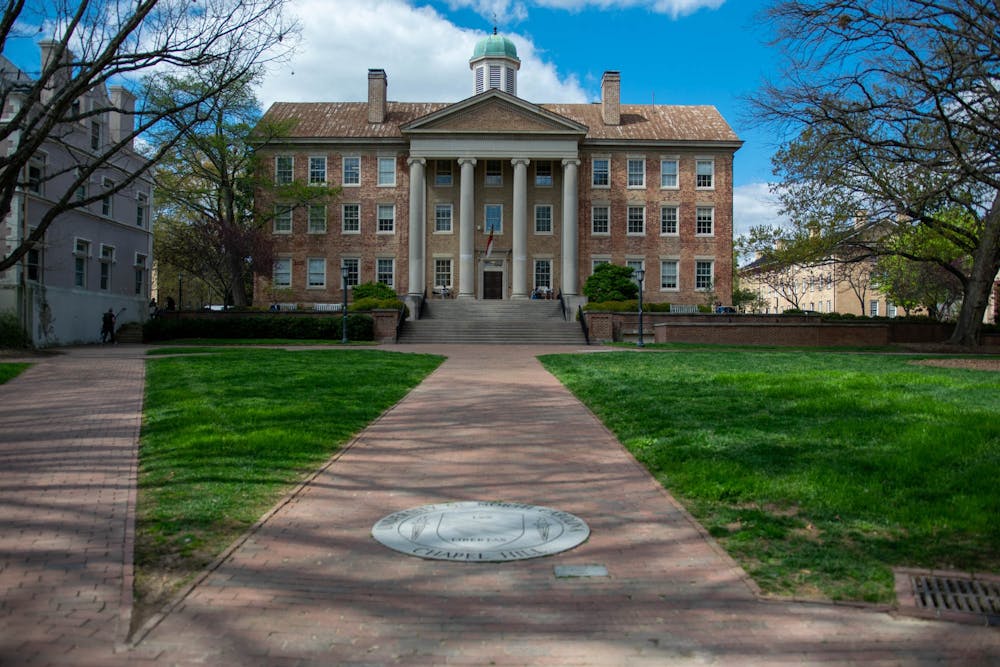The UNC Board of Governors' Committee on Budget and Finance met on Wednesday to discuss future economic steps for the UNC System. They discussed a House budget recommendation of a 7.5 percent legislative salary increase for all state employees over a two-year period.
The Committee also proposed additional support for the UNC System’s intercollegiate athletic programs, discussed the Anchor Institutions Create Economic Resilience partnership to promote entrepreneurial activity with local businesses and passed a motion regarding Project Kitty Hawk’s maximum tuition rate.
Here's what you missed:
What’s new?
- The UNC System reported gaining $11.4 billion in revenue last year, citing sales and services as a much larger portion of the fiscal year and a return to “normal operations" after COVID-19, Chief Financial Officer for the UNC System Jennifer Haygood said.
- To aid System sports programs, the House recommended $10 million to be allocated across 10 UNC institutions with the smallest interpolated athletic programs.
- Noting concerns on athletic fees for students, a study was commissioned through Econsult Solutions Inc. to quantify the economic impact from UNC System athletic operations.
- “Our programs generate about $1.13 billion in total economic activity throughout our state each year," Haygood said. "That's through the combination of not just the athletic operations but also the capital investments that we make in those facilities as well as visitor spending."
- Further amendments were also made to the UNC Self-Liquidating Capital Projects Bill. The bill clarified that institutions can transfer personal property, including athletic equipment, between fellow universities freely and without approval of the State Surplus Property Agency.
- The BOG heard from CREATE/NCGrowth representatives regarding an AICER partnership designed to help the UNC System foster relationships between local businesses and universities for campus development and increase economic resilience across the state.
- The AICER partnership was developed by CREATE/NCGrowth, an economic development center based at UNC-Chapel Hill.
- At the state level, there is a 10 percent goal for all public entities to be spending their dollars with “historically underutilized businesses”.
- “There's a study that had a multiplier effect of 1.51, which meant that for every dollar spent with these businesses, there's $1.51 of economic activity,” Assistant Director of Policy and Program Development at CREATE Alyse Polly said.
- NCGrowth talked about UNC Pembroke’s James A. Thomas Hall, which was built by Metcon Construction, a Native-American owned business.
- A motion was passed proposing the maximum tuition rate for Project Kitty Hawk.
- Project Kitty Hawk is a nonprofit startup aiming to create more accessible higher education for working adults.
- “We've done a pretty thorough competitive analysis of what students are paying in the state of North Carolina. This will allow us to be flexible and competitive with other out-of-state tuition,” Project Kitty Hawk Chief Operation Officer David Eby said.
- The project is seeking a maximum tuition rate of $500.00 per credit hour for undergraduates and $800.00 per credit hour for graduate students. These numbers were approved by the BOG in a full board meeting on Thursday. Since these are self-funded programs, the project aims to keep tuition at a market-priced level.
- Overall, the System has noted strong fiscal financial positions as temporary COVID-19 revenue declines in post-pandemic conditions.
- To model institution financial health, the System used an industry-wide metric known as the Composite Financial Index, developed by the National Association of College and University Business Officers (NACUBO).
- “In general, all of our institutions, we think, have very positive ratings right now, but the ones that are on the lower end of that spectrum are institutions that we're just monitoring a little bit more carefully,” Assistant Vice President for Financial Planning and Analysis of the UNC System Aubrey Clark-Brown said.




